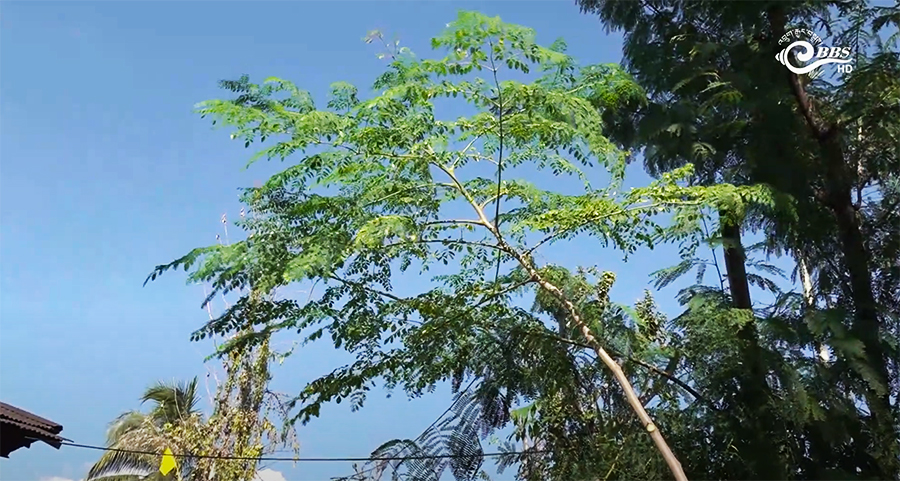 In Samdrup Jongkhar, residents of Langchenphu Gewog are turning moringa leaves into a source of income. Farmers in the gewog sell the leaves to a youth-led enterprise that processes them into moringa tea.
In Samdrup Jongkhar, residents of Langchenphu Gewog are turning moringa leaves into a source of income. Farmers in the gewog sell the leaves to a youth-led enterprise that processes them into moringa tea.
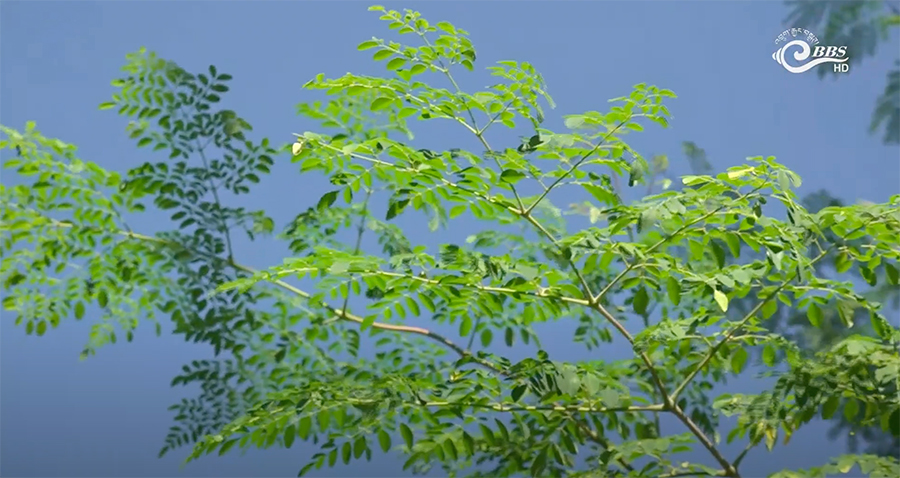 The Moringa tree, which is also called ‘the miracle tree’ or ‘the tree of life’, is considered one of the most nutrient-dense plants. The tree, known to be rich in antioxidant and anti-inflammatory properties, is being used as food and for medicinal purposes. However, it is also known to have side effects, especially for pregnant women.
The Moringa tree, which is also called ‘the miracle tree’ or ‘the tree of life’, is considered one of the most nutrient-dense plants. The tree, known to be rich in antioxidant and anti-inflammatory properties, is being used as food and for medicinal purposes. However, it is also known to have side effects, especially for pregnant women.
For years, villagers of Langchenphu Gewog harvested the seed-pods for consumption as vegetables, leaving the nutritious leaves unused.
Now, thanks to the youth-led cooperative, the demand for the leaves has surged, giving farmers a new source of income.
The cooperative in Langchenphu Gewog produces the tea.
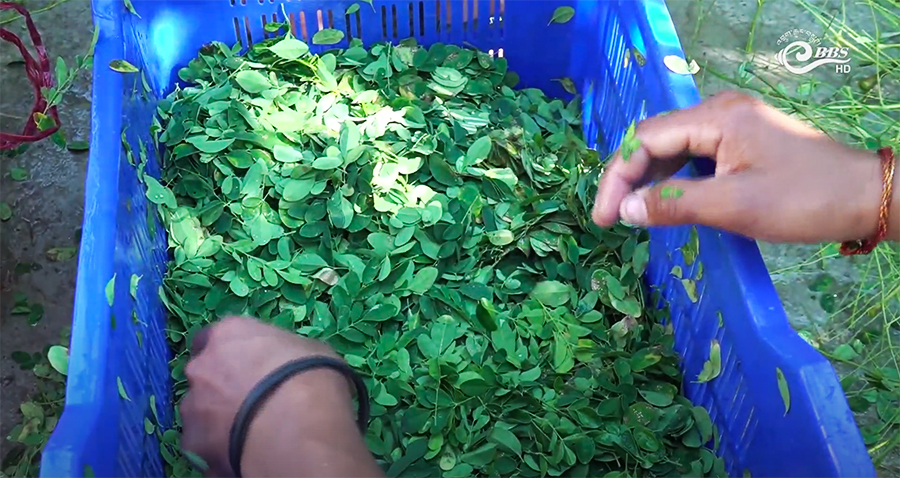 The group collects moringa leaves from the farmers, paying up to Nu 10,000, depending on the number of trees each farmer owns.
The group collects moringa leaves from the farmers, paying up to Nu 10,000, depending on the number of trees each farmer owns.
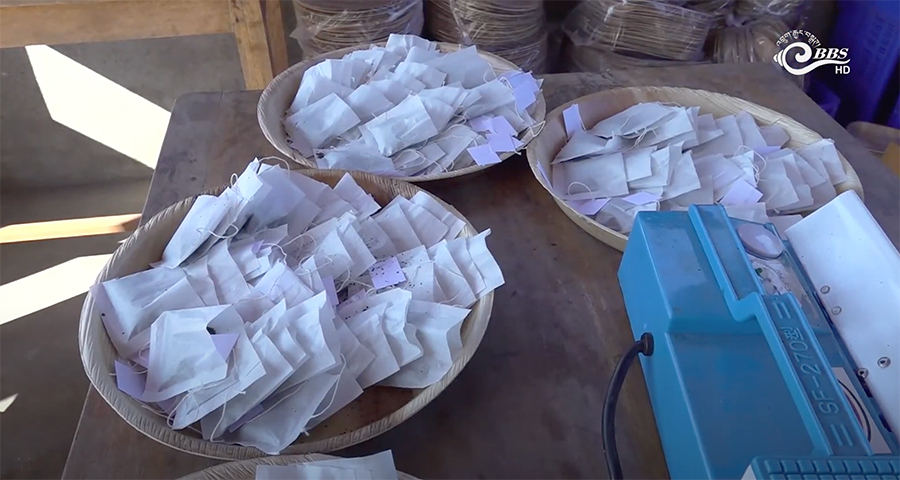 Once harvested, the leaves are thoroughly washed, fried, dried, and crushed into powder before being packaged into tea bags.
Once harvested, the leaves are thoroughly washed, fried, dried, and crushed into powder before being packaged into tea bags.
“Before, we didn’t sell moringa leaves, but now there is a market for them. Leaves are used to make moringa tea. If it goes well, we’ll plant more trees as it will benefit us,” said Harka Bahadur Karki, a resident of Langchenphu Gewog.
“We only sold the fruits of the moringa tree, but now we can sell the leaves too. This will benefit us, and we’re planning to plant more moringa trees to increase our income,” said Damanti Neopaney, another resident of Langchenphu Gewog.
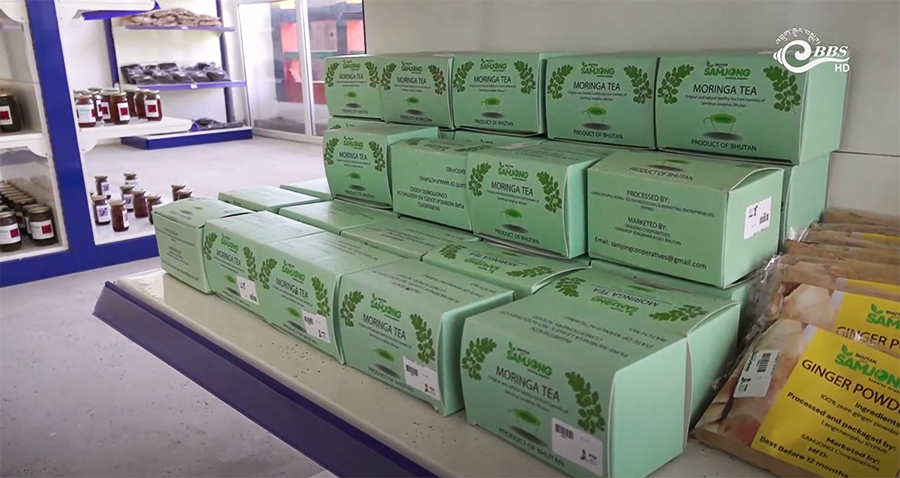 Once packaged, the tea is sent to sales outlets in Samdrupcholing Dungkhag and Samdrup Jongkhar town.
Once packaged, the tea is sent to sales outlets in Samdrupcholing Dungkhag and Samdrup Jongkhar town.
“This initiative has not only helped the villagers but has also created employment opportunities for rural youth. We opened the outlet in Samdrupcholing Dungkhag on 11 November and in Samdrup Jongkhar town on 17th December. It’s been successful so far, and we’re seeing good responses from the community,” said Jigme Phuntsho, a treasurer of Samjong Cooperative.
Samjong brand is expanding. A similar outlet will soon open in Jomotshangkha Dungkhag and Thimphu, which means better opportunities for the locals to earn more cash from moringa leaves.
Since its operation began in November, the rural youth processing and marketing entrepreneurs cooperative has produced over 400 boxes of Moringa Tea.
Kinley Wangchuk, Samdrup Jongkhar
Edited by Phub Gyem









